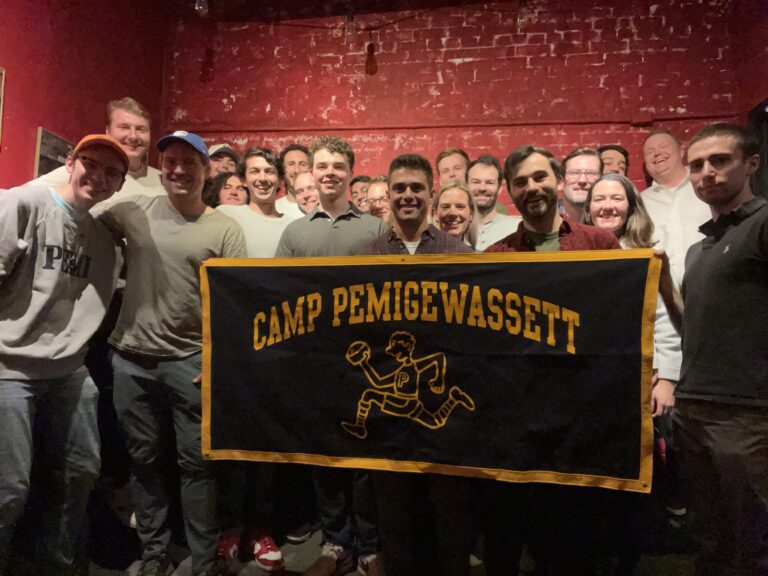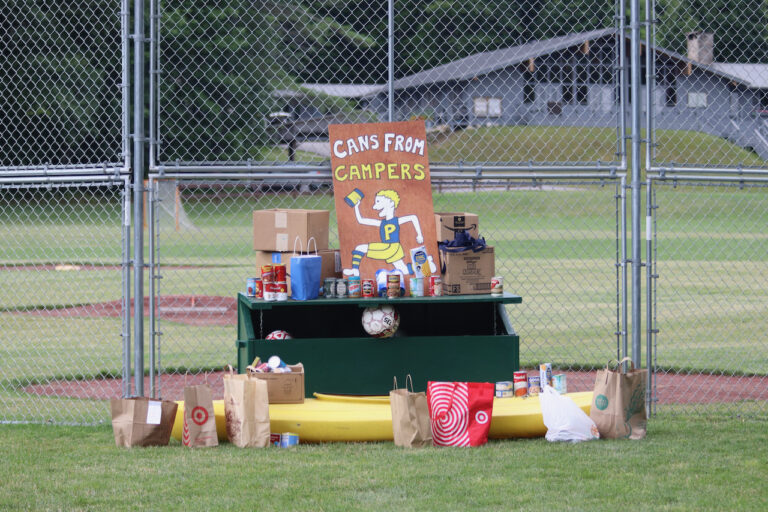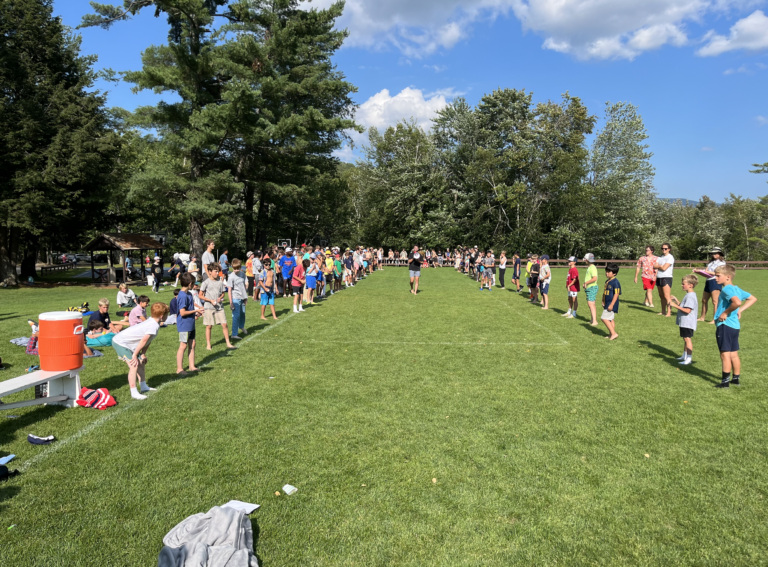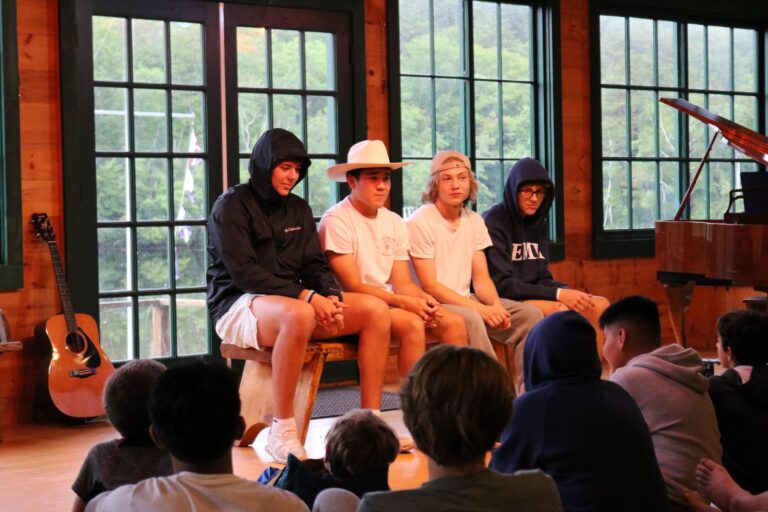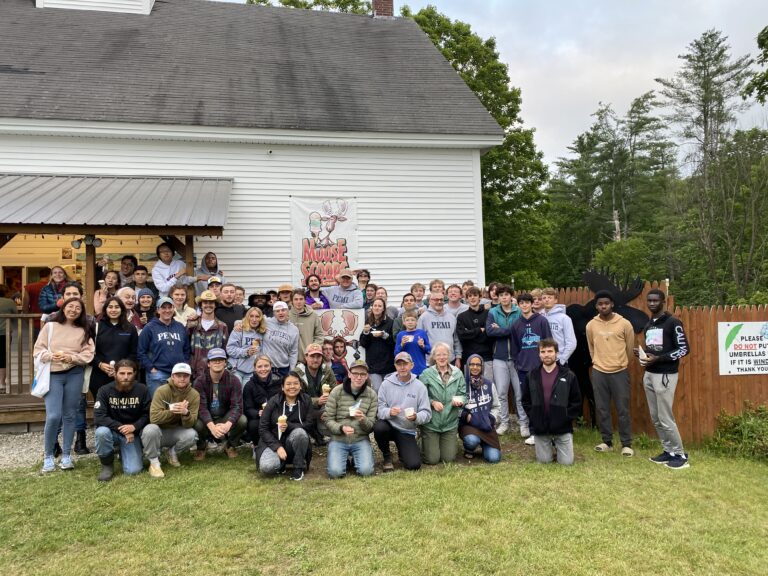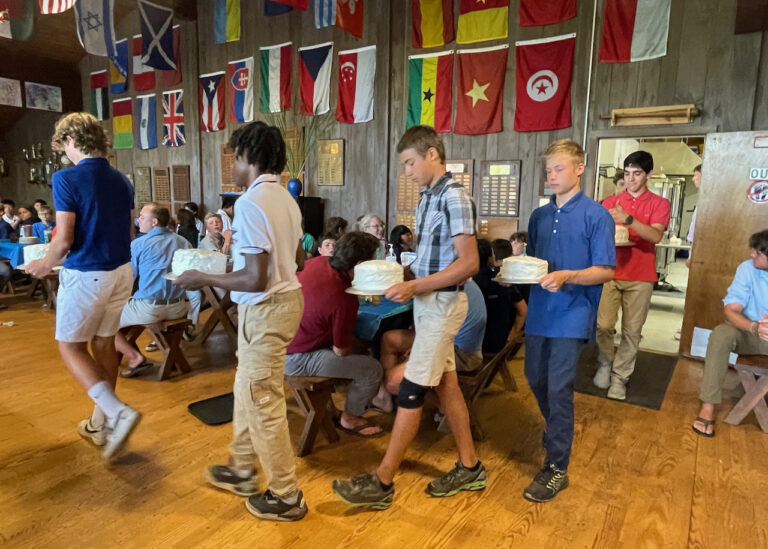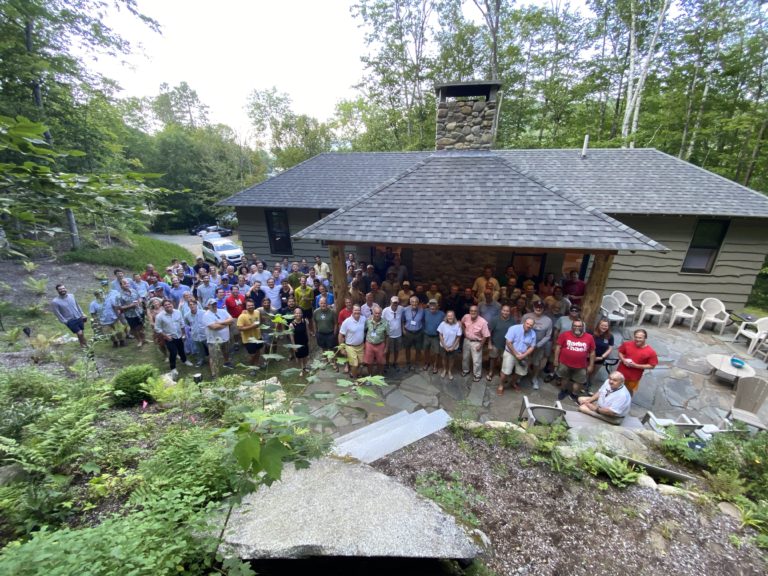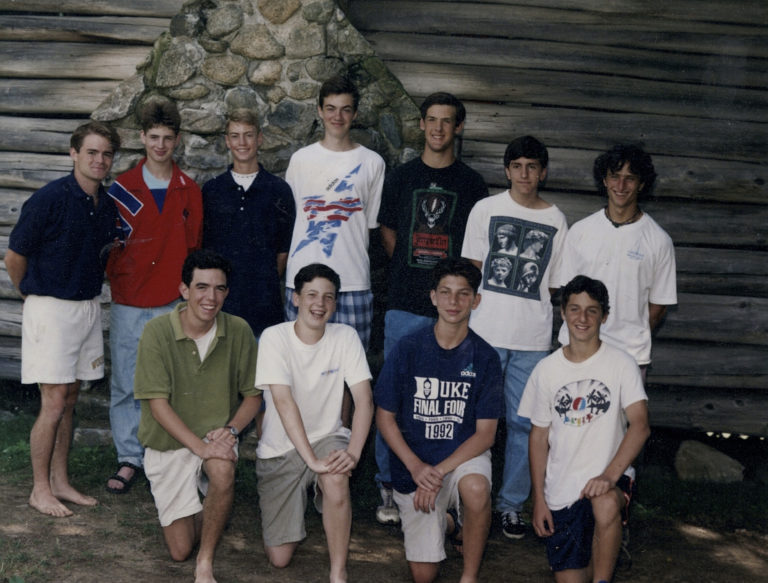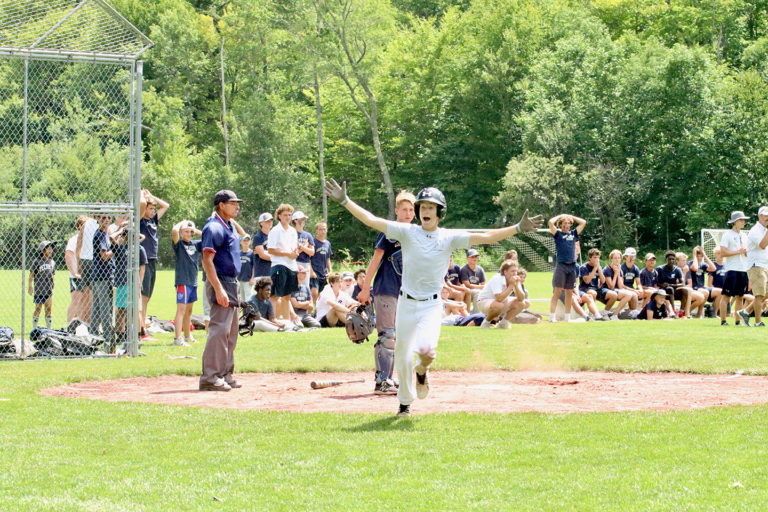- Camper Stories
- Daily Life at Pemi
- Music
- Pemi Alumni
- Pemi History
- Staff Stories
- The Arts
Ballad of a Bold, Bad Man
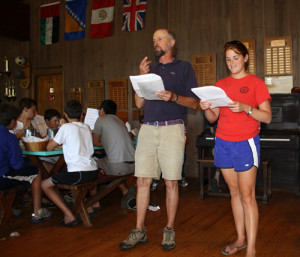
Singing in the Mess Hall is a time-honored staple of Pemi life. Noon and night, we rock the building’s rafters with a healthy variety of tunes, many of them written for camp by Doc Reed, many of them borrowed from distinguished U. S. colleges and universities, many of them plucked from the general American Song Book. We’re an old camp, catering solely to boys, so some of our numbers predictably contain fossilized evidence of a certain male arrogance and exclusiveness. We like to think that we have attained some humanizing perspective on any such lyrics, and that the civility, admiration, and respect with which we treat our many female staff members argue compellingly that we’re far more enlightened than we might once have been; that our singing these “traditional” songs is, in part, to acknowledge that they are in fact “dated” in many ways. Truth be told, if you examine one of our signature tunes – “Pemi” (which we tend to sing the very first night of the season) – Doc Reed himself seems to have realized that the male exclusivity of Pemigewassett was just that, artificially exclusive, something that needed to be acknowledged and kept in mind as we moved forward. The lines in question go, “There we sport on land and water, far from Eve’s disturbing daughter.” Hmmmm! But then, as a crucial coda, he added “Though, perhaps, we hadn’t oughter.” Some folks are perceivers and fans of irony, some not. (On which, more below.) But are we wrong to assert that this is humorous posturing; not actual, blatant, unqualified gynophobia? We hope we aren’t.
In any case, it recently occurred to us that, while we sing the songs of many traditionally male and now co-ed institutions, we had never, ever learned and chorused anything from a womens’ college. Given one of our current staff is Bridgid Ruf of Wellesley, why not, we wondered, ask her to research some tunes from her alma mater and introduce them to the Pemi Songbook? Bridgid was game to follow up. She went online, downloaded a dozen Wellesley tunes, and vetted them with the help of Music Head and messhall pianist Ian Axness. They evidently reached a quick consensus, choosing “Ballad of a Bold, Bad Man,” penned in 1939 when the male editor of the Harvard Lampoon went in drag and crashed Wellesley’s May Day hoop-rolling contest, winning by a fair length. Reminiscent of catching the bouquet after a wedding, the victor was traditionally expected to be the next Wellesley bride. Ned Read, however, was unlikely to enjoy that fate. Instead, when his curly wig tumbled from his head, he was revealed as a fraud and hurled ignominiously into Lake Waban.
Here are the lyrics. Know that the tune is quite jaunty.

Ballad of a Bold, Bad Man
Oh! Many an old alumna will remember with a thrill
The First of May when ’39 was gathered on the Hill,
For among the smiling maidens, like a serpent in the grass,
Stood a masquerading Harvard man who cried, “They shall not pass!”
Chorus:
Sing hey the handsome Harvard man who posed as a Wellesley lass,
Sing hey the Senior gown that made him one of the Senior class,
Sing hey the Harvard Crimson flashing so triumphantly,
But tra-la-la tra-la-la tra-la-la-la!
The Wellesley Blue for me.
He murmured as he took his place at 7:23,
“My little sister, Mary Smith, has saved this place for me.”
Not hoops nor rhododendrons could check the villain’s stride.
He won the race, was crowned the class’s best prospective bride.
Chorus:
But as the crown was placed upon the wig that had concealed,
It slipped from off the May Queen’s brow; the rascal was revealed.
From many mouths the cry arose of, “Treason! She’s a man!”
The pseudo-queen grew deathly pale; he quickly turned and ran.
Chorus:
The crowd pursued him to the lake; they threw him in the drink.
They laughed and said, “It’s up to you, either to swim or sink,”
And then returned triumphantly to crown the rightful queen,
On the most historic May Day that our alma mater’s seen.
Chorus:
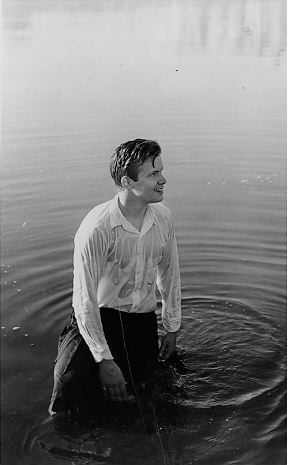
So are you all lovers of irony? Here’s where it truly comes in. Pemi makes, in this case, a game effort to nod to the distaff side in our messhall singing. We introduce a song (premiered lustily in mid-July) about females rising up against male arrogance and deception. The mild shocker came when the rough shape of the tale rang a bell with us, and we looked further into details. The Ned Read in question was, in fact, the editor of The Harvard Lampoon. He had also been a frequent contributor to Bean Soup!!! During his days as a camper at Pemigewassett!!! Ned’s sons Bunk and John were campers here in the late fifties and early sixties, and John was one of my best friends and cabin mates, returning to the staff in 1967 as an editor of Bean Soup. Remarkable coincidence? Machination of fate? Ironic it is (as Yoda might say) that we go to some lengths finally to bring the woman’s perspective to the Mess Hall songfest and – lo and behold – a Pemi boy irrepressibly pops up in the song, if not as the hero, at least as the villain. Makes you think the cards are stacked against political correctness.
Well, we won’t stop striving to bring our institution squarely into the 21st century. But we thought you’d enjoy knowing the novel twists and turns of this particular iteration of the effort. Guess it’s just proof that you can’t keep a good Pemi boy in the shadows of anyone, either man OR woman.








